|
Getting your Trinity Audio player ready...
|
(Part Three, ideas 30-40: Events and eCommerce)
This is the third in our series outlining different ways publishers are looking to raise revenue.
Part One, (ideas 1-12) looked at Paywalls and Subscriptions, while Part Two (ideas 13-29) explored Advertising and Ad-Free opportunities.
In this third segment we examine opportunities around events and eCommerce. A fourth section, which will be published next month, will look at content.
Events
There’s a lot of excitement among publishers large, and small, about the potential afforded by events. Billy Penn, an online offering based in Philadelphia, for example, has previously reported that events constituted 80% of its revenue.
Although time consuming, and requiring a skillset not necessarily found in many newsrooms, events typically offer a means to diversify beyond the paywall, ostensibly through ticket sales and sponsorship.
Beyond this, they can also provide a platform to tell stories and interact with audiences in new, engaging ways.
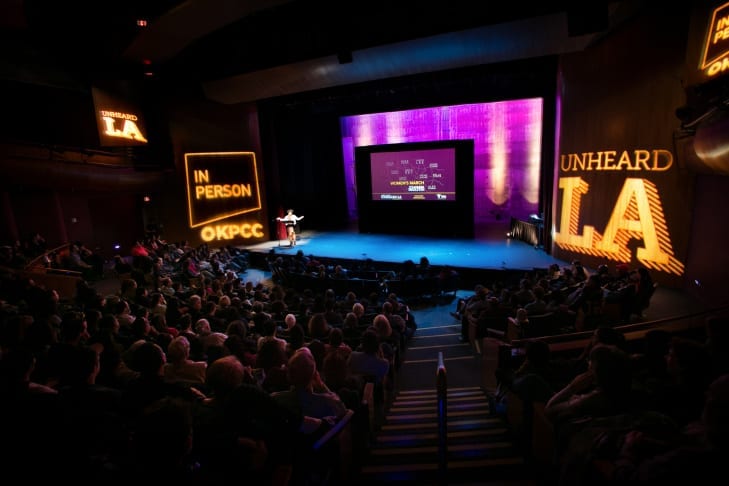
Outlets like The Seattle Times (with Education Lab), and Californian public radio station KPCC (Unheard LA),have found events to be a great source for stories and fresh perspectives. At the same time, they’ve also reported that many attendees are not necessarily consumers of their core product.
Events therefore aren’t just a revenue source for the here and now, they can also be an avenue for attracting new audiences and subscribers.
Here’s some of the more common event formats publishers are experimenting with:
30 – Industry Conferences and One-Off Events
A number of larger publications host activities with a key focus on industry networking and knowledge. These events create content, offer chances to meet like-minded professionals, and, in turn, also generate revenue.
Earlier this month, Recode hosted an hour long conversation with “with three veteran political journalists from NBC News: Chuck Todd, Andrea Mitchell and Hallie Jackson.” Chaired by Kara Swisher, the event included (as part of the $30 ticket price) an hour long networking reception prior to the discussion.
Recode’s biggest event, their annual 3-day Code Conference, bills itself as “the world’s premier technology conference.” Featuring sit-downs with some of the biggest names in the Valley and the tech world, the event is super-exclusive. Not only do tickets cost several thousand dollars (based on the last time I asked,) attendance is also carefully controlled, as even having the opportunity to register for tickets is invite only.
31 – Live Shows / Recordings
Popular radio shows like This American Life and Radiolab have, at various points, undertaken live tours, playing at theatres across the States.
It’s a move others have followed. Recode’s podcast, Recode Decode, recently taped an interview with Hillary Clinton at the Kaufmann Concert Hall in New York. Tickets cost from $100.
Meanwhile, Slate’s excellent Slow Burn podcast (Series 2, “your guide to everything you never knew about Bill Clinton, Monica Lewinsky, and the scandal that nearly ended a presidency”) has been out on the road, as has Pod Save America.
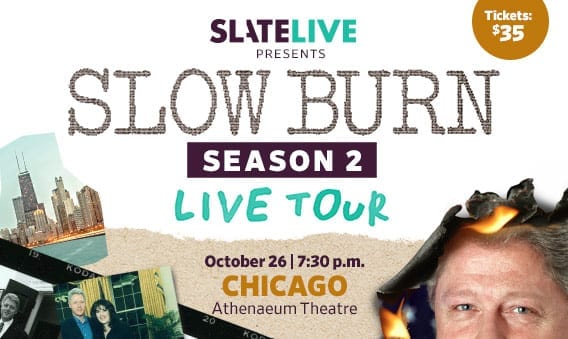
32 – Ideas Festivals
The New Yorker’s decision to invite Steve Bannon to headline their 2018 Ideas Festival sparked a major backlash, ultimately leading to the withdrawal of the offer for Bannon to participate.
Nonetheless, plenty of other events with high profile and prominent speakers (including multiple activities happening concurrently at different locations in New York) did take place.
This included conversations with Jimmy Fallon, Hollywood stars like Jim Carrey and Maggie Gyllenhaal, author Zadie Smith, a preview screening of the feature documentary on Fox News chairman and C.E.O. Roger Ailes, and “A Masterclass in Fact Checking” with the New Yorker fact checkers Parker Henry, Sean Lavery, Fergus McIntosh, and Neima Jahromi.
Sponsors of the Festival included Hennessy, Land Rover and WordPress.
Smaller outlets, like The Texas Tribune, have also delivered large-scale events. Their three-day 2018 Festival featured over 300 speakers; including Nancy Pelosi, the U.S. House Democratic Leader, and John Kerry, the Former U.S. Secretary of State. The focus of the Festival is “examining politics and policy issues facing Texas and the United States.”
Write-ups with highlights from the sessions, replays of live-stream recordings and podcasts, are all available online. The Tribune runs a number of additional events throughout the year.
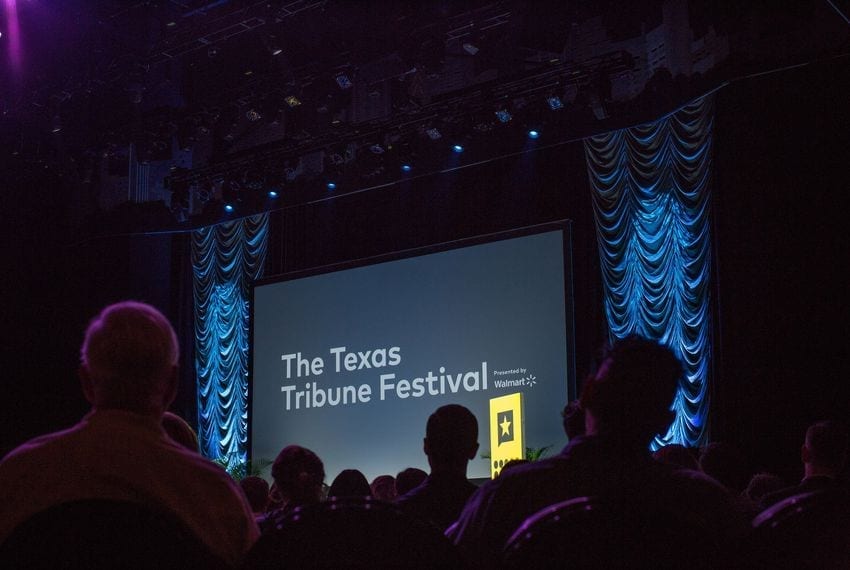
33 – Award Ceremonies and Galas
GeekWire, a Seattle based tech publication, hosts a wide variety of different events, including an annual ceremony honoring the top companies and entrepreneurs across the Pacific Northwest. In 2018, 900 people joined them at the Museum of Pop Culture in Seattle for the tenth annual GeekWire Awards.
MinnPost – an independent, member-supported outlet in Minnesota – has hosted an annual variety show for the past 11 years. Their 2018 MinnRoast was attended by over 1,200 members, sponsors and friends of the publication.
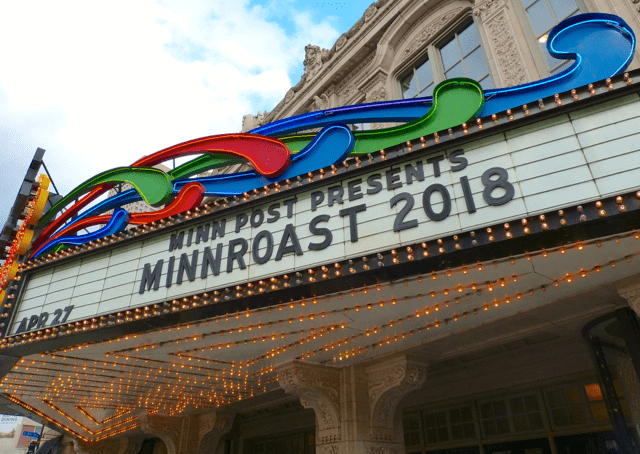
34 – Happy Hours and Socials
CityLab and MinnPost recently co-hosted a free event where attendees cold grab a drink and chat with journalists about the upcoming midterm elections. They’ve used a similar format for paid social events too.
Described as “the most unique and fun event on the Seattle tech calendar,” the GeekWire Bash blends networking with fun! It “brings together a broad cross-section of the tech community, including many developers and engineers,” for ping-pong, dodgeball, foosball tournaments, beer pong, board games and more. Over 1,700 attended the 2018 event.
35 – Wedding Fairs
In Tennessee, the Chattanooga Times Free Press has organized the “Bridal Affair” an annual ticketed event allowing guests to “find the area’s finest wedding professionals, ranging from venues to caterers to florists, photographers and more.”
Brooklyn Based, an email magazine for Brooklyn with 100,000+ NYC subscribers, also produces an annual event with a martial theme: “Wedding Crashers, Brooklyn’s best wedding fair for modern lovers.”
eCommerce
We’ve reported recently about how publishers continue ‘pivot to ecommerce’ noting TI Media’s launch of Marie Claire Edit, and also looked at the Evening Standard’s ecommerce strategy.
As with events, although there is revenue potential here, there are also additional layers complexity for publishers if they move into this space. Nevertheless, given the on-going need for income diversification, we can expect more publishers to explore these possibilities.
36 – Archival prints and publications
A staple for many print publications for a number of years, this revenue stream has been refreshed for the digital age. The Denver Post, through its online store, sells Colorado photos taken by its photojournalists.
Similarly, The Seattle Times – on occasion working with third parties – sells wall art, keepsake pages (reprints for their archive), photos and prints as well as coffee table books.
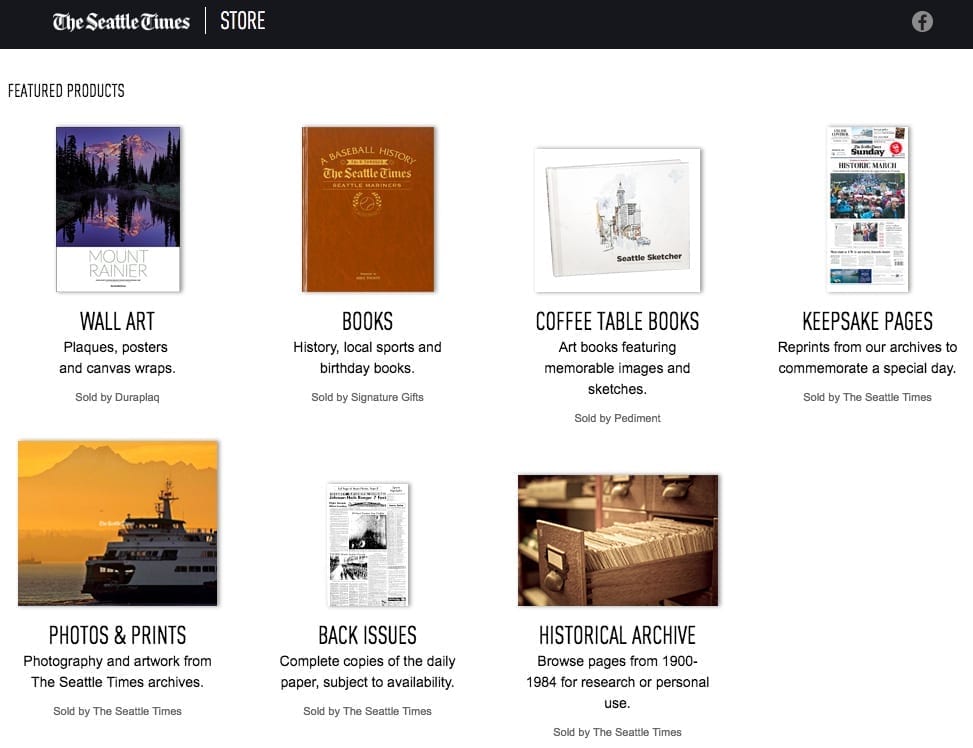
37 – T-shirts and local clothing apparel
It’s not uncommon for some publishers to sell merchandise. But the Richland Source, a for-profit online news site in Ohio, has taken this to a whole new level. Four years ago, they launched “Made in the 419” a portal selling clothes, books and music designed and made in the 419 area code.
“Made in the 419 is proud to say that our photographers, graphic artists, screen printers, embroiderers and artisans are from Mansfield, Plymouth, Shelby, and all over the region,” their website states. “And if we can’t get it here, we buy from companies like American Apparel that manufacture their goods here in the USA.”
Jay Allred, publisher of Richland Source, however downplayed its impact. He told Nieman Lab in 2015: “Made in the 419 gets more interest than any other thing we do — even though I’ll tell you it generates the least amount of revenue; we’re basically break-even on it.”
Despite this, here at What’s New in Publishing, we thought this innovation worth sharing!

38 – Online stores
In a similar, but different vein to Richland Source, the website Boing Boing has an online store selling a range of materials targeted at the interests of their audience. This includes gear + gadgets, lifestyle related goods, apps and software as well as online courses.
39 – Affiliate sales and links
More common, perhaps, is the approach seen by Digital Trends, BuzzFeed and others, which weave purchase opportunities into their content.
In some cases, this very much reads like an advertorial, in terms of both style and editorial justification (see 18 Of The Best Shower Curtains You Can Get On Amazon on BuzzFeed).
At this time of year, product reviews – complete with links to purchase – are also prevalent. Digital Trends includes links to buy products that they’ve reviewed (e.g. headphones) online. They’re also not adverse to more topical fare: “The best last-minute Christmas gift ideas under $25 to $100,” being just one example. In the latter example, they make it clear: “Digital Trends may earn a commission when you buy through links on our site.”
In other instances, publishers weave affiliate links into the text, in a manner which encouraged the reader to dive deeper into the topic being explored.
The website, Brain Pickings, is a good example of this. A recent feature on Hermann Hesse provides links on Amazon to Hesse’s book “If the War Goes On…” as well as the option to search for the volume via a public library. The website has a clear disclaimer at the bottom about these links.
Brain Pickings participates in the Amazon Services LLC Associates Program, an affiliate advertising program designed to provide a means for sites to earn commissions by linking to Amazon. In more human terms, this means that whenever you buy a book on Amazon from a link on here, I get a small percentage of its price. That helps support Brain Pickings by offsetting a fraction of what it takes to maintain the site, and is very much appreciated
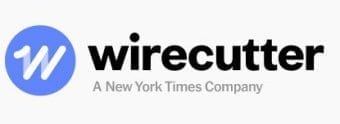
Perhaps the most prominent example of a publisher seeing potential for eCommerce is the New York Times’ purchase of Wirecutter. In 2016, they paid more than $30 million for the product reviews sire. Bloomberg noted the site generated $150 million in e-commerce in 2015, and that it kept 4%-8% of any transactions.
Mark Thompson, president and CEO of The New York Times Company, in a press release announcing the purchase, said:
“The New York Times is the definitive source for news, information and entertainment and now we’re working on becoming an authoritative destination for service journalism, with verticals like Cooking, Watching and Well. The practical approach that The Wirecutter and The Sweethome take to product recommendations embodies the same standards and values that are the pillars of our own newsroom. Their service-focused guides align with our commitment to creating products that are an indispensable part of our readers’s lives.”
40 – Cruises and other holidays for readers
Finally, it’s worth noting how some publishers are going the extra mile – or rather several thousand extra miles – by generating revenue through travel.
In May 2019, fans of New England Public Radio can embark on a 12 day tour of Greece (see the brochure here). Costing just undr $5,000, without flight, it includes a sunset cruise on Santorini, private guided walks through the Parthenon and Acropolis, and more!
Previous trips have included excursions to Poland, Germany, Belgium and the Netherlands.

Meanwhile, the Nation, a progressive American magazine “founded by abolitionists in 1865,” offers Travel activities alongside a Shop, and Wine Club (a service several other outlets also provide).
As their website explains: “Our mission is to design singular excursions for our community of adventurous, intellectually curious, and open-minded progressives.”
This began in 1998 with an annual, weeklong, seminar cruise. Their 2019 cruise will visit Alaska with senior journalists from the publication, as well as freelance journalists and authors, also on the speaking schedule.
For the past four years, travel possibilities for readers have been expanded to also include land-based itineraries, including 16 visits to Cuba.
“We focus on parts of the world where our governments are sometimes at odds, yet where there is much to learn and experience. travelers,” they state, noting recent visits to Iran, Russia, Colombia, Vietnam and India.
“100% of the proceeds from our travel programs support The Nation’s journalism,” they add.
Next month, in the fourth part of this series, we’ll look at how publishers are making money from content.


